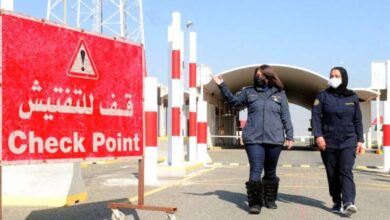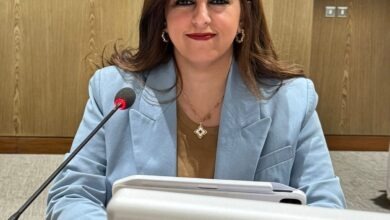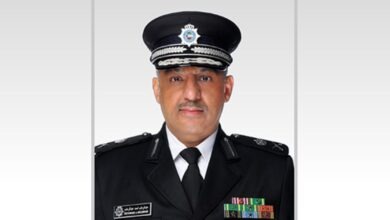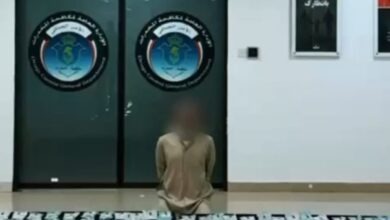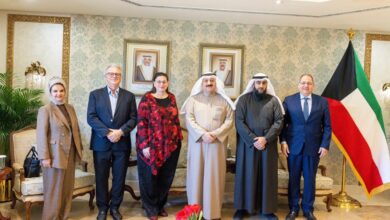
International Relations:
Jan 1: Sweden took the rotating presidency of the European Union Council for a six-month period.
Jan 6: The US and Japan signed a Memorandum of Cooperation to launch a Task Force on the Promotion of Human Rights and International Labor Standards in Supply Chains.
Jan 10: The Two Chinese Embassies in Japan and South Korea suspended visa issuance for both countries’ citizens, as a retaliation to the restrictions imposed by Tokyo and Seoul on Chinese travelers over COVID-19 spread.
Jan 10: EU and NATO signed the third Joint Declaration to deepen and strengthen their strategic partnership.
Jan 12: Turkiye summoned Sweden ambassador to Ankara and informed him of its rejection of the propaganda of supporters of the “PKK” organization in Stockholm that targeted President Recep Tayyip Erdogan.
Jan 13: The US and Japan signed an agreement that will build on decades of cooperation in the exploration and use of outer space.
Jan 16: India and the UK agreed to boost cooperation on bilateral, regional and global issues within the framework of the 15th consultations between them.
Jan 17: The US imposed visa restrictions on 25 individuals from Belarus for their alleged involvement in undermining democracy in their country.
Jan 17: The Russian Federation imposed new sanctions on more European officials, banning them from entering Russian territory.
Jan 19: Romania returns its ambassador to his position in Vienna, after a dispute between the two countries.
Jan 19: France and Spain signed a treaty of friendship and cooperation to deepen cooperation between the two countries.
Jan 20: Turkiye summoned Sweden ambassador to Ankara and condemned in the strongest terms of his country’s authorities allowing burning a copy of the Holy Quran in front of Ankara embassy in Stockholm.
Jan 23: Russia announced it ordered Estonian Ambassador to leave the country and decided to downgrade diplomatic representation with it.
Jan 24: Turkiye summoned the Dutch ambassador to Ankara to protest against the attack on the Holy Quran in The Hague.
Jan 27: Turkiye summoned Danish ambassador to Ankara to protest against the permission to attack the Holy Quran in front of the Turkish embassy in Copenhagen.
Feb 1: Secretary of State Antony Blinken announced the appointment of Louis Bono as the United States new senior advisor for Caucasus negotiations.
Feb 1: The EU has released EUR 43 million (USD 46 million) in humanitarian aid for ] Myanmar and Rohingya refugees ‘ and their host communities in Bangladesh
Feb 1: The Treaty between the Italian Republic and the French Republic for Enhanced Bilateral Cooperation, known as the Quirinal Treaty, officially enters into force.
Feb 2: Austria expelled four Russian diplomats based in Vienna, engaged in acts incompatible with their diplomatic status.
Feb 3: The EU hold first summit Ukraine and since the start of the special Russian operation in Ukraine, to discuss its continuous support for Kyiv.
Feb 3: China said that the unmanned Chinese “airship” that was spotted over US airspace s for meteorological research, stressing that it entered the US “by force majeure”.
Feb 4: The Pentagon detected another Chinese spy balloon, hovering over Latin America.
Feb 4: Austrian and Slovakia agreed to put an end to the internal border controls.
Feb 4: US military shot down the suspected Chinese surveillance balloon over the Atlantic Ocean.
Feb 7: Greece and UK signed a new defense and security agreement, targeting closer collaboration to benefit each country’s military.
Feb 9: The US and UK imposed sanctions against seven Russian members of Trickbot, a notorious hacking group based in Russia.
Feb 10: South Korea announced its first independent sanctions on North Korea in response to Pyongyang’s cryptocurrency theft and other illicit cyber activities.
Feb 12: Canada shot down an unidentified flying object that violated Canadian airspace.
Feb 14: EU Council adopted a decision authorizing EU member states to ratify the Second Additional Protocol to the Convention on Cybercrime (Budapest Convention).
Feb 15: Ukraine decided not to take part in the OSCE Parliamentary Assembly winter session, to be held in Vienna, due to Russian parliamentary delegation participation.
Feb 16: Russia expelled four Austrian diplomats in a tit-for-tat move.
Feb 16: UK announced the launch of a new fund in cooperation with non-governmental organizations to support humanitarian work in the African Sahel region, and allocated an initial budget of GBP 33 million (around USD 40 million).
Feb 20: EU added 32 individuals and 2 entities in Iran to its new sanctions list.
Feb 21: Italy begun supplying electrical equipment to Ukraine to help ensure stable access to electricity for three million people in areas affected by bombing.
Feb 22: The International Federation of Journalists suspended Russian Union of Journalists (RUJ) membership, due to Russia’s formation of RUJ branches in annexed Ukrainian territories.
Feb 23: European Commission decided to suspend the use of TikTok application on its corporate devices and on personal devices enrolled in the Commission mobile device service.
Feb 25: India and Germany agreed on boosting security and defense cooperation.
Feb 25: EU imposed additional sanctions against individuals and entities linked to Russian Wagner Group in view of the international dimension and gravity of the group’s activities.
Feb 27: US Agency for International Development (USAID) announced it is providing more than USD 126 million in additional food assistance to the people of Kenya.
March 9: EU Council gave the green light on visa-free travel for holders of passports issued by Kosovo.
March 10: India and the US agreed to enhance cooperation in several trade and investment areas.
March 10: India and Australian agreed to boost cooperation in fields of security, defense, trade and investment.
March 10: The UK announced new funding of GBP 5.26 million for the Rohingya refugees in Bangladesh.
March 12: Saudi Arabia and Iran reached an agreement to resume diplomatic relations between them and re-open their embassies.
March 13: Russia agreed to extend Black Sea grain deal for 60 days.
March 13: The EU decided to prolong sanctions targeting those responsible for undermining or threatening the territorial integrity, sovereignty and independence of Ukraine for another six months.
March 14: The US called in the Russian ambassador in Washington after two Russian aircrafts intercepted a US surveillance aircraft during flying in international airspace over the Black Sea.
March 15: The US imposed sanctions on three individuals who pose a threat to the law, regional stability, and democracy in Bosnia and Herzegovina.
March 15: The US announced more than USD 331 million in new humanitarian aid for Ethiopia, to provide life-saving support to those displaced and affected by conflict, drought and food insecurity.
March 16: The US announced USD 150 million in humanitarian aid to countries in West and Central Africa and the Sahel region including Burkina Faso, Chad, Mali, Mauritania and Niger.
March 16: UK banned social media app TikTok from work phones and computers used by ministers and civil employees for security reasons.
March 17: The International Criminal Court in the Hague issued an arrest warrant against Russian President Vladimir Putin.
March 17: The US announced more than USD 140 million in additional humanitarian assistance and more than USD 31 million in development assistance to respond to the needs of vulnerable Venezuelans.
March 17: Turkish President Recep Tayyip Erdogan declared Ankara’s approval of Finland’s joining NATO.
March 17: Japan expanded its sanctions on North Korea in response to Pyongyang’s test firing an intercontinental ballistic missile.
March 19: EU High Representative Josep Borrell announced that the leaders of Serbia and Kosovo have agreed on how to implement a EU-mediated deal to normalize their relations.
March 20: UK banned far-right Danish politician Rasmus Paludan from entering its territory after he declared intention to burn a copy of the Holy Quran in the country.
March 23: The European Parliament’s Committee on Civil Liberties, Justice and Interior Affairs endorsed a short-stay visa freedom agreement with Kosovo.
March 24: The US Justice Department announced arresting the founder of one of the World’s largest hacker forums and disruption of forum’s operation.
March 24: The US sanctioned three entities and nine Belarussian individuals and identified one presidential aircraft as blocked property.
March 27: Hungary ratified Finland’s membership of NATO.
March 29: British King Charles III arrived in the German capital Berlin for his first foreign visit since assuming the throne.
March 30: The US sanctioned one individual of Slovakian nationality for attempting to facilitate arms deals between Russia and North Korea.
April 6: Iran and Saudi Arabia agree in the Chinese capital Beijing to officially resume diplomatic relations and enhance economic and trade cooperation between the two countries.
April 11: Germany announced that it had given Chad’s ambassador to Germany, Mariam Moussa, 48 hours to leave German territory, in response to the Chadian government’s request for German Ambassador Jan Christian Gordon Kricke to leave the Chadian capital N’Djamena.
April 17: Britain summons Russia’s ambassador to the United Kingdom, Andrey Kelin, following Moscow court ruling that a prominent dissident has been imprisoned on charges including high treason.
April 20: The European Commission announces its agreement to allow Kosovo citizens to travel to EU countries without a visa, starting in January 2024.
April 22: The Russian Federation decides to expel more than 20 German diplomats in response to a similar move from Berlin against Russian diplomats.
April 26: Austria rejects Slovenia’s request to open the common border between the two countries.
April 26: Russia expels 10 Norwegian diplomats from its territory considering them persona non grata, in response to a similar Norwegian action against Russian diplomats.
April 28: Britain and Croatia signed a joint declaration to enhance cooperation between their countries in the fields of security, trade, immigration and climate change.
July 2: Iran refrained from sending a new ambassador to Sweden in protest over the burning a copy of the Quran outside a mosque in Stockholm.
July 3: European Commission announced that the International Centre for the Prosecution of the Crime of Aggression against Ukraine started its operations in the Hague, the Netherlands.
July 5: German Parliament (Bundestag) gave the green light to buy 60 military aircrafts to transport soldiers.
July 6: Russia expelled nine Finnish diplomats in retaliation for a similar move by Finland.
July 6: UK unveiled new sanctions regime for Iranian individuals and entities.
July 6: Iran summoned the British charge d’affaires Elizabeth Marsh of the British Embassy in Tehran over the interventionist remarks made by the UK authorities.
July 7: US provided cluster munitions to Ukraine in an additional military aid package of USD 800 million.
July 7: US announced launching the Global Coalition to combat Synthetic Drugs threats.
July 7: India and the UK renewed strategic partnership and boost security cooperation.
July 7: EU reached a provisional deal with European Parliament to speed up ammunition production to support Ukraine.
July 7: US President Joe Biden announced that the US has “safely destroyed” the final munition in the nation’s stockpile of chemical weapons.
July 7: Belgium adopted Integrated Strategy for the Sahel Region.
July 17: UK imposed 14 new sanctions against Russia in response to the latter’s attempts to destroy Ukrainian national identity, after the deportation of Ukrainian children.
July 19: US announced USD 1.3 billion additional assistance aid for Ukraine.
July 20: EU imposed sanctions against 18 individuals and 5 entities due to serious human right violations and abuses in Afghanistan, South Sudan, the Central African Republic, Ukraine and Russia.
July 20: US imposed new sanctions on 120 individuals and entities over violating the imposed sanctions on Russia.
July 20: UK imposed new sanctions on individuals and companies linked to Russia’s Military group (Wagner) and its activities in Mali, the Central Africa.
Aug 1: US launches a new Bureau of Global Heath Security and Diplomacy, aimed at international cooperation to help improve global health and counter infectious diseases.
Aug 1: Heads of the Rome-based UN food and agriculture agencies called for greater investments in South Sudan to avoid a catastrophic food crisis.
Aug 1: Italy arranged a special evacuation flight to repatriate nationals from Niger’s Capital Niamey, as its embassy continues its political efforts with the military council.
Aug 1: France announced preparations to evacuate its citizens from Niger, after the military coup.
Aug 2: The first group of British nationals have been evacuated from Niger, after the military coup.
Aug 2: Italy ruled out any military intervention in Niger and stressed that the Italian forces and the West military units are at the airport.
Aug 2: China refused US accusation of “forced labor” in China’s autonomous region Xinjiang.
Aug 2: France accused Russia of threatening global food security, after Moscow attacked a key Ukrainian port across the Danube River, which inflicted damage on grain storage facilities.
Aug 2: Italy evacuated a group of Italians and others from Niger.
Aug 3: EU banned exporting aviation and space technology to Belarus as part of a new package of sanctions that also included 38 citizens and three companies.
Aug 3: Paris completed evacuating French nationals and foreign nationals from Niger.
Aug 3: US decreased the number of non-emergency personnel and family members from Niger.
Aug 7: A group of 50 immigrants arrived to the UK and were transferred to the Bibby Stockholm barge in Portland Port.
Aug 9: UK and Turkiye agreed on a new partnership to enhance cooperation on tackling the illegal movement of migrants, and keep both countries safer.
Aug 10: ECOWAS bloc in West Africa has ordered the deployment of a standby force to restore constitutional order in Niger, after the military coup.
Aug 10: Washington confirmed that the five Americans detained in Iran had been released and placed under house arrest.
Aug 11:UK transfer immigrants from the Bibby Stockholm barge due to water contamination.
Aug 11: World Food Program (WFP) successfully delivered first food assistance to West Darfur four months after Sudan conflict started.
Aug 13: Greek coast guard rescued 48 immigrants from rudderless boat near Lesbos Island.
Aug 15: US hosted tripartite summit at camp David, alongside Japan and South Korea.
Aug 16: The new US ambassador to Niger will travel to the capital Niamey to perform her duties but does not plan to provide her credentials to the leaders of the coup that toppled President Bazoum.
Aug 16: ECOWAS Defense Ministers held an emergency meeting in the Ghanaian capital Accra to discuss military intervention aimed at ending the Niger coup.
Aug 17: US Treasury Dept. designated two Syria-based armed militias and three members of the groups’ leadership structures, in connection with serious human rights abuses in Afrin northern Syria.
Aug 18: Russia barred 54 British citizens from entering the country, in response to the UK’s sanctions against its citizens and enterprises.
Aug 18: Russia has banned entry to several Moldovan officials following Moldova’s “unfriendly” decision to expel 22 Russian diplomats.
Aug 18: US, Japan, S. Korea agreed in Camp David to “inaugurate a new era of trilateral partnership.”
Aug 19: Mali and Burkina Faso dispatched warplanes to Niger in response to a potential armed intervention by ECOWAS.
Aug 21: US State Department has approved the potential sale and related equipment to Poland in a deal valued at up to USD 12 billion.
Aug 21: ECOWAS rejected a proposal by Niger’s military junta to hold elections within three
years.
Aug 24: Singapore and Qatar signed five memoranda of understanding (MOU) to cooperate in areas of social development and family, education, water-related research, enterprise digitalization and innovation, and commercial partnerships.
Aug 24: The BRICS announced that six countries, including Saudi Arabia, Egypt, UAE,
Argentine, Iran and Ethiopia will join the bloc as full members in January next year.
Aug 26: India and EU agreed to deepen commercial and economic partnership during the Third India-EU High Level Dialogue on Trade and Investment held in New Delhi.
Aug 28: India and Bangladesh agreed to boost defense ties following the fifth Annual Defense Dialogue held in Dhaka.
Aug 30: Malaysia rejected a new Chinese map that claims waters off Malaysia’s coast in the South China Sea.
Aug 30: US urged citizens in the Caribbean country Haiti to leave “as soon as possible” citing security and infrastructure challenges, as escalating violence has left thousands displaced and sent homicides soaring.
Aug 31: France summoned Iran’s chargé d’affaires at the Embassy of Iran, on the grounds of Iran closing the French Institute for Research in Iran (IFRI), despite France’s full compliance with Iran’s unilateral decision to close the institute in January 2023.
Sept 1: South Korea and Japan expanded sanctions against North Korea, following Pyongyang’s attempted missiles launch.
Sept 7: UNESCO granted temporary enhanced protection to twenty cultural sites in Ukraine.
Sept 7: Britain announced it would rejoin the EU’s Horizon science research programme, ending a two-year post-Brexit standoff with the EU over science funding.
Sept 8: US government seized nearly one million barrels of Iranian crude oil allegedly bound for China, in violation of US imposed sanctions.
Sept 8: Indian and French Naval forces conducted second phase of the 21st edition of naval exercise Varuna-23 in the Arabian Sea.
Sept 9: India and several countries launched development initiatives including Partnership for Global Infrastructure and Investment, the India-Middle East-Europe Corridor and the Global Biofuels Alliance during G20 summit in New Delhi.
Sept 10: EU welcomed the accession of the African Union as a permanent member of the G20.
Sept 10: US and Vietnam signed an amended bilateral Comprehensive Strategic Partnership Agreement.
Sept 11: India and Saudi Arabia signed eight agreements to cement bilateral cooperation, and more than 20 MoU’s.
Sept 12: Italy activated Civil Protection Mechanism to support Libya, in the wake of devastating floods caused by Daniel hurricane that hit eastern Libya.
Sept 13: US and Bahrain signed Comprehensive Security Integration and Prosperity Agreement, to strengthen the strategic partnership.
Sept 13: China appointed first ambassador to Afghanistan under Taliban rule.
Sept 13: Italy’s Defense Ministry announced dispatching field reconnaissance teams in preparation to send the Italian armed forces to help flood-swept areas in eastern Libya.
Sept 13: EU activated Civil Protection Mechanism to support Libya, in the aftermath of the devastating floods that left thousands of casualties.
Sept 14: US expanded sanctions related to Russia’s military operation in Ukraine to include elites and entities specializing in Russia’s military and technological industries and financial Russian individuals and entities based outside Russia.
Sept 14: France provided emergency medical aid to Libya, in the aftermath of the devastating floods caused by Daniel hurricane.
Sept 14: US appointed former Commerce Secretary Penny Pritzker to serve as the new US special representative for Ukraine’s economic recovery.
Sept 14: Italian Red Cross delivered first batch of relief aid and materials to flood-swept areas in eastern Libya.
Sept 16: Mali, Burkina Faso and Niger signed the Charter Establishing the Alliance of Sahel States (Alliance of Sahel States) as a structure to coordinate their efforts in “collective and joint defense, economic cooperation and mutual assistance for the benefit of their people.
Sept 17: UK banned its retired officers from participating in training rival countries’ armies without official permission.
Sept 18: Five Americans detained in Iran have been freed and landed in Doha in route to their home country as part of a prisoner swap deal between Washington and Tehran.
Sept 18: Russia announced its withdrawal from the Barents Euro-Arctic Council, and claimed that the responsibility for the cooperation’s collapse lies solely with the council’s western members.
Sept 18: EU approved law to exchange digital information in terrorism cases with European Union Agency for Criminal Justice Cooperation (Eurojust).
Sept 19: India and Malaysia agreed to further deepen defense cooperation at the 12th MalaysiaIndia Defense Cooperation Committee meeting held in New Delhi.
Sept 19: Transitional government in Niger announced taking part in the high-level meetings of the 78th United Nations General Assembly.
Sept 19: EU Ministers Council appointed Bulgarian Iliana Ivanova as new EU Commissioner for innovation and research.
Sept 20: Leaders of the UN member states pledged, in a political declaration, to prevent a repeat of the devastating health and socioeconomic crises caused by COVID-19 and shore up the world’s ability to head off another pandemic.
Sept 21: Talks on disarmament began between Azerbaijani officials and members of the
Armenian community in Nagorno-Karabakh.
Sept 21: US extended protection to Afghans in its territory for 18 months.
Sept 22: European Parliament announced adding 15 extra seats in its 2024-2029 configuration, making the total to 720 MEPs.
Sept 23: Niger’s military council accused UN Secretary General Antonio Guterres of “obstructing” the West African nation’s full participation at the UN’s annual meeting of world leader.
Sept 23: UN Member States have adopted the Political Declaration of the High-Level Meeting (HLM) on the Fight Against Tuberculosis.
Sept 24: France announced withdrawing its ambassador from Niger followed by the French
military contingent by the end of this year.
Sept 25: Nigerien government banned French aircrafts from entering its’ airspace, following France’s decision to withdraw its ambassador and forces stationed there.
Sept 26: US announced that it had recognized the Pacific nations of Cook Islands and Niue, establishing diplomatic relations with both countries.
Sept 26: More than 28,000 people took refuge in Armenia from Nagorno-Karabakh, since local forces surrendered to Azerbaijan.
Sept 27: US confirmed the return of American soldier Travis King who was detained in North Korea.
Sept 27: Turkish Interior Minister Ali Yerlikaya announced that 42,875 people, who entered Turkiye irregularly, were deported between June 1 and Sept 22.
Sept 28: Armenia announced that the number of Armenians who took refuge there from the Nagorno-Karabakh region has exceeded 74,000.
Sept 28: US and Japan agreed to enhance alliance between them.
Sept 28: Eleven countries have been newly elected to serve on the 35-member IAEA Board of Governors for the 2023-2024 period, among of which is Algeria.
Oct 5: France announced military disengagement with Niger.
Oct 6: Britain announced the arrival of 200 soldiers to work in NATO-led peacekeeping mission in Kosovo.
Oct 9: EU approved new regulations that would make renewable energy account for 42.5 percent of energy consumption by 2030.
Oct 9: Sudan and Iran resumed diplomatic relations after seven years hiatus.
Oct 9: Spain opposed EC announcement of suspension of aid for the Palestinians, and OXFAM said EC decision unacceptable.
Oct 10: Belgium said it would not suspend aid for Palestinians, and EU asserts non suspension of aid, while Turkiye suspended flights to Israel.
Oct 15: Rallies in Spain and Brussels in support of the Palestinians and rejection of the Israeli occupation aggression.
Oct 17: Malaysia withdrew from Frankfurt book fair because of its bias to the Israeli occupation.
Oct 18: UNSC failed to pass a draft resolution regarding Israeli occupation aggression.
Oct 23: Turkish President Recep Tayyip Erdogan signed a protocol over Sweden NATO’s membership.
Nov 7: Britain and Poland signed a USD 4.9 billion defense industries agreement.
Nov 11: massive demonstrations in European cities against the Israeli occupation aggression on Gaza.
Nov 20: EU agreed to refer the situation in Palestine to ICC.
Nov 21: UN said 40 trucks loaded with aid entered Gaza Strip.
Dec 5: Britain and Rwanda signed a partnership agreement to organize immigration and economic development.
Dec 12: UN General Assembly approved a resolution calling for a ceasefire in Gaza, immediate release of hostages and delivery of aid.
Dec 13: Iran waived visa on 32 countries including Kuwait.
Dec 16: Britain lowered flags at half-mast to mourn late Kuwaiti Amir Sheikh Nawaf Al Ahmad Al-Jaber Al-Sabah.
Dec 17: Pakistan announced mourning and lowering of flag at half-mast after death of Kuwait Amir.
Dec 18: UN lowered flag at half-mast to mourn late Kuwaiti Amir.
Dec 23: The ruling military council in Niger said the last French soldier left the country.
Source: KUNA








